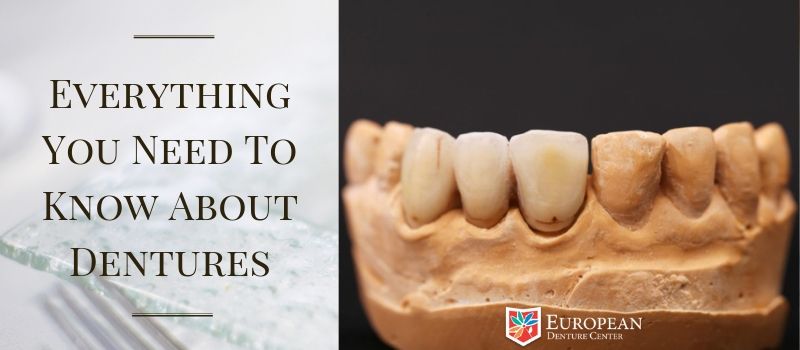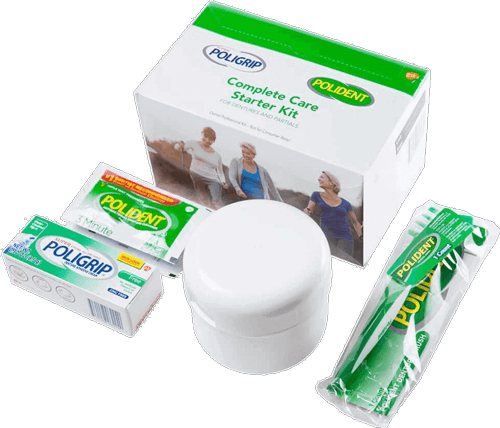
Everything You Need To Know About Dentures
If you’re suffering from oral health problems and are at risk of losing your teeth, it doesn’t necessarily mean you’ll have to cope with a life without teeth. Dentures are one of the best solutions available for people who are suffering from tooth loss. They can even help you preserve your remaining healthy teeth!
Thanks to modern dentistry, there are several options available when it comes to dentures. Here are the broad categories in which dentures are generally divided:
Full Dentures
Full sets of dentures are used for patients who have lost all their teeth or have no healthy teeth remaining. They come in full sets for the lower and upper jaw. The upper dentures come with a full base that attaches to the roof of the mouth for stability, while lower dentures are more like a U-shape to provide space for the tongue to move freely.
It is usually advisable to have any remaining decaying teeth removed before the full dentures are installed. This allows the gums to heal and prevents any further bone loss, helping to improve the overall health of your mouth.
Since full dentures are removable, they are also easier to clean, helping you to maintain good oral hygiene while wearing them.
Dental Implants
Dental implants are a permanent form of dentures, which means that they aren’t removable. Using this method, anchors are surgically affixed to the jaw bone. After the procedure, the gums are given about six months to heal before placing the full set of dentures on the anchors.
Implants can also be used to replace one or two teeth rather than a whole set.
Implant dentures are the closest denture option to regular teeth since they’re not removable, and they need regular brushing and flossing to maintain proper oral hygiene.
Partial Dentures
For patients who haven’t lost all of their teeth and don’t have any sort of gum diseases leading to additional tooth loss, partial dentures may be a viable option. They are often used for people who were involved in some sort of accident and lost teeth because of an injury.
Partial dentures are a set of one or two replacement teeth and are attached to the adjoining teeth using metal clasps. An advanced procedure for fixing them involves installing dental crowns in the gums, just in case the surrounding teeth are not healthy and cannot support the replacement tooth.
Flexible Partial Dentures
Flexible partial dentures can be a short-term solution for patients who are awaiting a more permanent set of dentures in the future.
Flexible partial dentures are lightweight dentures that replace a few missing teeth and fit over the remaining teeth. They can be detached easily and are another affordable denture option available.
Here are some commonly asked questions about dentures
What Are Dentures?
Dentures are artificial replacements of your natural teeth and gums. They are created by your dentist to address problems like tooth loss. Dentures are categorized into full or partial, meaning they can either substitute all teeth above or below the gum line or just a few missing teeth. No matter what type of dentures you may need, they will be customized to match your existing teeth. Visit a denturist for a consultation to learn which denture option is the best for you.
How Are Full Dentures Made?
The supporting structure of dentures is responsible for holding the artificial teeth in place and is generally made from acrylic resin or elastic polymer material that snugly fits on the natural gum line. Porcelain used to be the preferred material for creating denture teeth; however, resin has become more popular because of its lighter properties and the teeth adhere better to the denture base.
What Are the Benefits of Wearing Dentures?
Some of the significant benefits of dentures are:
- They improve the look of a smile by replacing multiple missing teeth.
- Support the mouth’s structure near the cheeks and lips.
- Restore the chewing function of teeth to maintain a regular healthy diet.
- Offer a viable teeth replacement solution for treating severe pain and oral health issues.
- Help to replace problematic teeth with a healthy and aesthetic alternative.
How to Clean Your Dentures
Dentures are more delicate than natural teeth. Regardless of what type of dentures you have, you should clean them daily just like regular teeth. Even though dentures are artificial teeth, they are still prone to bacteria, plaque, and tartar build-up, which can pose a risk to existing teeth and gums if not cleaned regularly. Follow these steps to ensure proper denture cleaning:
- Remove your dentures from your mouth and run water over them to remove any food particles.
- Brush the dentures with a denture brush or a soft-bristled toothbrush using a gentle soap or denture cleaner.
- Rinse your dentures thoroughly before putting them back into your mouth.
- Avoid using abrasive cleaners, regular toothpaste, or electric toothbrushes to prevent damage to your dentures.



